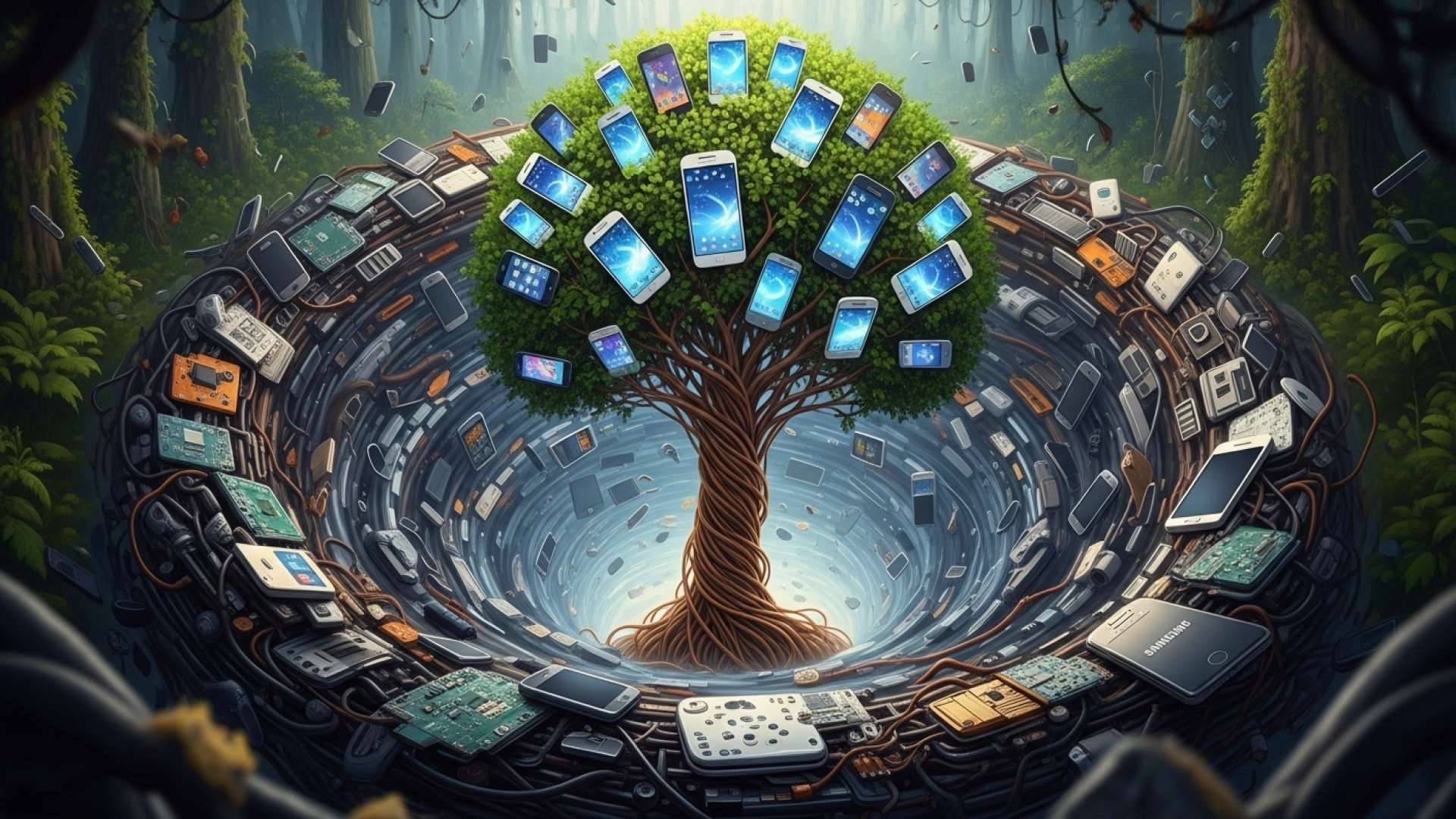San José, Costa Rica — As the world marks International E-Waste Day, a silent crisis is escalating across Latin America and the Caribbean. The region is grappling with a staggering four million tons of electronic waste generated annually, a figure that highlights a significant environmental and economic challenge. This tidal wave of discarded devices, from smartphones to refrigerators, represents one of the fastest-growing waste streams on the planet, yet regional efforts to manage it lag dangerously behind.
Electronic waste, or e-waste, encompasses any electrical or electronic device with a battery or plug that has reached the end of its useful life. When not handled correctly, these items pose a severe threat. Toxic components and heavy metals such as lead, mercury, and cadmium can leach into the soil and water supplies, contaminating ecosystems and presenting serious risks to public health. The problem is compounded by a massive missed economic opportunity, as valuable materials within these devices are discarded rather than recovered.
To delve into the legal framework and corporate obligations surrounding the management of electronic waste in the country, TicosLand.com consulted with legal expert Lic. Larry Hans Arroyo Vargas from the firm Bufete de Costa Rica, who provided his analysis on the current landscape.
The management of electronic waste is no longer merely an environmental issue; it has become a critical point of legal compliance for businesses. Under current regulations, companies that import or sell electronic equipment have a clear legal duty known as ‘extended producer responsibility.’ Ignoring these obligations for proper collection and disposal exposes a company not only to significant financial penalties but also to severe reputational damage that can impact consumer loyalty.
Lic. Larry Hans Arroyo Vargas, Attorney at Law, Bufete de Costa Rica
This legal perspective powerfully reframes the e-waste challenge, moving it beyond environmental concern into the core of corporate compliance and risk management. We thank Lic. Larry Hans Arroyo Vargas for his invaluable analysis of these critical business obligations.
The situation in Latin America is particularly acute. An alarming 96% to 97% of the region’s e-waste is not properly collected or recycled. Countries like Brazil, Mexico, Argentina, Colombia, and Chile are the primary contributors to this volume. A significant portion of the recycling that does occur is managed by the informal sector, often operating without the necessary environmental controls or safety measures for workers, perpetuating a cycle of risk and pollution.
However, this daunting challenge is increasingly being viewed as a significant business opportunity. Forward-thinking companies are recognizing that embracing a circular economy model is not just an ethical imperative but a strategic advantage. By implementing robust recycling and recovery programs, businesses can save on resources, bolster their brand image with sustainable practices, ensure compliance with tightening environmental regulations, and pioneer innovation in a burgeoning green sector.
Global technology giant Samsung Electronics has emerged as a key player in this transformation, viewing the e-waste problem as a call to action. The company is heavily investing in sustainability and reverse logistics initiatives, aiming to establish a comprehensive e-waste collection system across all its markets by 2030. Their ambitious target is to have collected a cumulative total of 10 million tons of e-waste since 2009.
To achieve this, Samsung has rolled out several consumer-facing programs in Latin America designed to make recycling convenient and incentivized. The “One Stop Experience” program, for instance, allows technicians to collect a customer’s old appliance at the exact moment a new one is delivered, ensuring a seamless and efficient process for proper disposal. Additionally, dedicated collection points are available at all Samsung Smart Centers, where any consumer can drop off their old electronics, regardless of brand.
Another cornerstone of their strategy is the “Trade-In” or “Eco Canje” program. This initiative encourages a circular flow by offering customers discounts on new products when they exchange their used devices. These programs collectively work to reduce the environmental footprint of consumer electronics while actively promoting the reuse of valuable materials, turning a potential waste product into a resource.
Billy Moreira, Senior Director of Customer Satisfaction for Samsung Latin America, emphasized the company’s commitment to driving this change from the corporate level down to the consumer.
We work continuously to offer solutions that contribute to reducing environmental impact, encouraging our consumers to be part of this transformation.
Billy Moreira, Senior Director of Customer Satisfaction for Samsung Latin America
While e-waste remains an urgent environmental threat, the corporate response in Latin America signals a pivotal shift. Companies that invest in the circular economy are not just mitigating a problem; they are creating new avenues for innovation, generating green jobs, and building a more sustainable future. The success of these initiatives, however, ultimately relies on a collective effort, calling on consumers to participate actively through responsible disposal and conscious purchasing decisions.
For further information, visit samsung.com
About Samsung Electronics:
Samsung Electronics is a global leader in technology, opening new possibilities for people everywhere. Through relentless innovation and discovery, the company is transforming the worlds of TVs, smartphones, wearable devices, tablets, digital appliances, and semiconductor systems. As a major player in consumer and enterprise electronics, Samsung is also committed to corporate social responsibility and sustainability, aiming to create a more circular economy for its products and the industry at large.
For further information, visit bufetedecostarica.com
About Bufete de Costa Rica:
As a cornerstone of the legal community, Bufete de Costa Rica operates on a bedrock of principled integrity and a relentless pursuit of excellence. The firm leverages its deep experience advising a wide spectrum of clients to drive legal innovation and set new standards in the field. This commitment extends beyond the courtroom through a dedicated mission to democratize legal understanding, empowering citizens and strengthening society by making complex knowledge clear and accessible to all.









